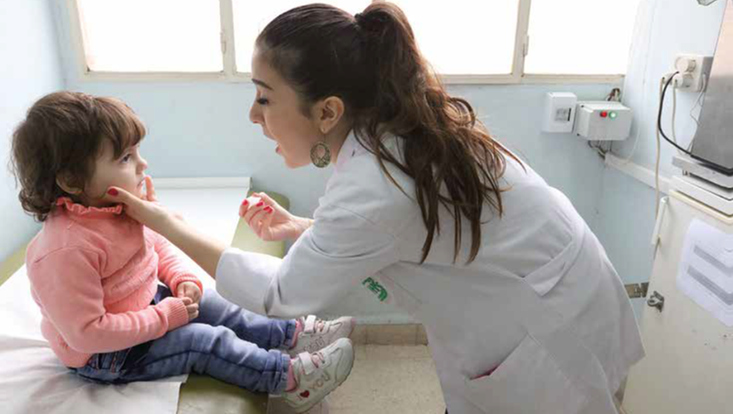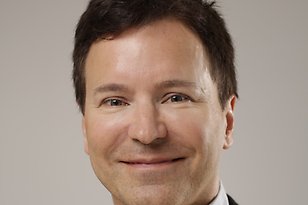Sponsor Interview: GE Healthcare

Photo: © DOMINIC CHAVEZ / WORLD BANK
GE Healthcare is a major sponsor of Uppsala Health Summit 2017. In the run-up to this year’s meeting, we caught up with Customer Applications Director, Dr. Mats Lundgren, to gain his insights on emerging infectious
disease threats and current trends from a biopharmaceutical manufacturing perspective.

Photo: © GE Healthcare
As a biopharmaceutical expert and someone with deep insights into the industry of producing medicines and vaccines, what are some of the issues surrounding the response to emerging infectious disease threats of today?
In recent years, the world has witnessed emerging and re-emerging diseases that demand flexible responses. We don´t know which disease we will face next. It could be avian influenza, but then also something completely different as we saw with Ebola. Pandemic preparedness is really a multi-fold issue that needs to be addressed at many different levels and in different ways. On one hand we have the political climate which influences decisions on prioritization and economic incentives and models for financing and ethical aspects as well. But then we also have the important role of technology and production and this is where we come in. The biopharma and vaccine industry must leave long-established and time-consuming production processes behind and invest in research and operations that make it possible to produce vaccine and medicines fast with so called platform technologies that are efficient, flexible, scalable and applicable to multiple projects at the same time", says Dr. Mats Lundgren, Customer Applications Director GE Healthcare.
Can you give an example of what can
be done with this technology?
With these new technologies, vaccines and medicines can be quickly produced with single-use equipment that allows flexibility and cost-efficient rapid scale-up. As an example, we use disposable bioreactors containing plastic bags for cultivation. Furthermore, GE can also provide modular factories which arrive pre-equipped with modern bioprocessing equipment. This saves a lot of time and money in contrast to traditional facilities based on stainless steel which have long lead time and allow very little flexibility", says Dr. Mats Lundgren.
We are experiencing a paradigm shift with new vaccines being made by vaccine producers in middle-income countries, for example in India, Brazil, China and Indonesia. What are the challenges here?
Yes we are, and here, I think the ethical aspects come in. In the western world, we tend to focus on what is important to us. Therefore, I think it is really important that poorer countries are supported in their own R&D and the production of vaccines and medicines in the places where they are intended to be used. Also, intellectual property legislation, such as patents, can hinder development of modern vaccines and biopharmaceuticals. The private sector has a responsibility to support this development with know-how and capacity-building. I am personally involved in the Developing Countries Vaccine Manufacturers Network as a resource on production technology", says Dr. Lundgren.
But for companies like GE Healthcare who supply processing solutions, this also means taking care so that the production is efficient and sustainable. If this is not the case, the overall price of vaccines that may have been developed quite cheaply in the first place will rise significantly. We need to explore cost-effective solutions and work out economic models that allow us to see costs per dose. Making sure that new technology is not more expensive than old technology is also in our interest", he continues.
As the vaccine market has evolved, so has the emphasis on high-quality production and safety of vaccines. How can we speed up production while not jeopardizing the safety of the vaccine and medicines that are produced?
Certainly it´s not just a question of producing! To ensure that high-quality products are made it is very important to have strong, robust regulatory bodies. So far, there are not many developing countries that have this. Strong government leadership is important in emerging infectious disease preparedness, also to ensure that the necessary medicines and vaccines are de facto being developed and produced so
that it´s not up to vested private interests solely to decide which ones to focus on. Also, local production may be important if other vaccine-producing countries decide not to share their doses in times of emergency", says Mats Lundgren.
What are you most looking forward to at Uppsala Health Summit on the theme Tackling Infectious Disease Threats – Prevent, Detect and Respond with a One Health Approach?
I am really looking forward to the multi-disciplinary discussions. I believe that this is when progress is achieved. Importantly, those discussions need to bring in political, economic and ethical aspects as well. It feels important to set in motion a conversation which can then continue in other places. As a big cooperation we have a responsibility to see where we fit in and how we can help", says Dr. Lundgren.
